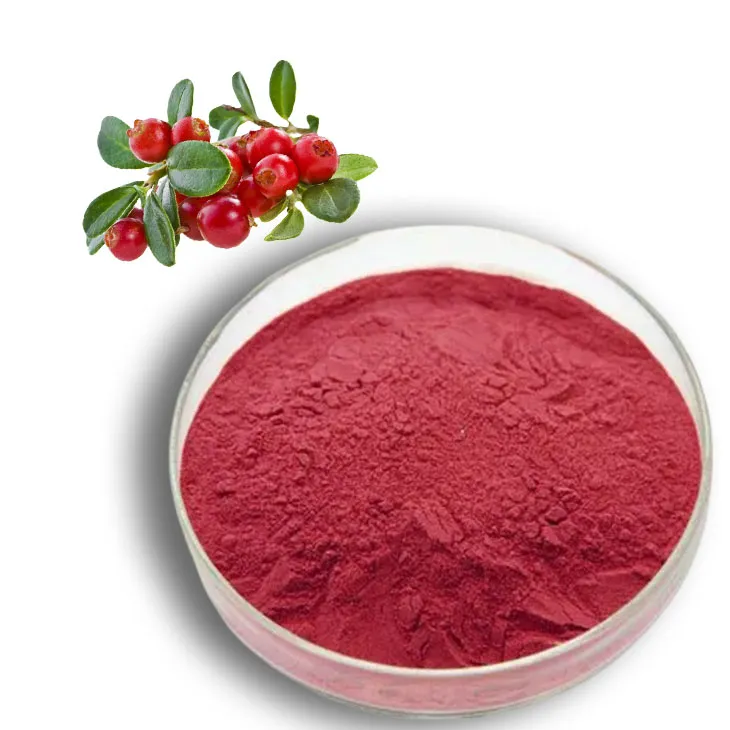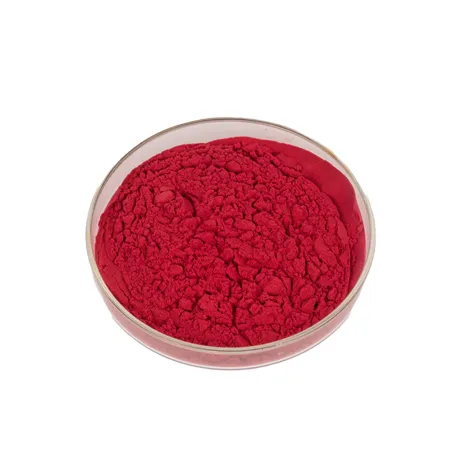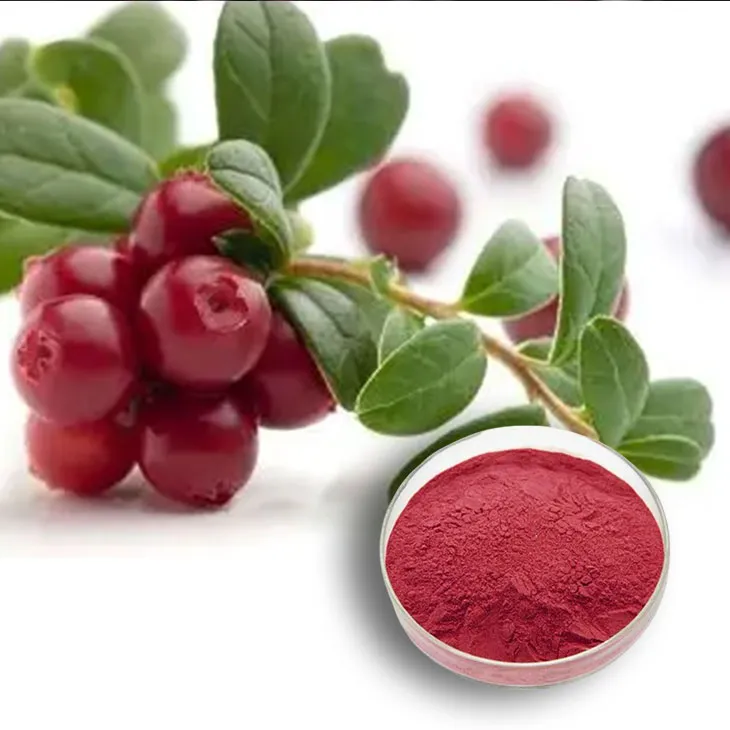- 0086-571-85302990
- sales@greenskybio.com
Is Cranberry Extract Good for the Liver?
2025-07-09

Cranberries have long been celebrated for their health benefits, particularly for urinary tract health. However, interest is growing around the potential role of Cranberry Extract in supporting liver health. With liver diseases on the rise globally, it's important to explore natural options that may promote liver function and protect against liver-related issues. This article delves into the scientific evidence behind Cranberry Extract's potential benefits for the liver, its mechanisms of action, and important considerations for use.
Understanding Cranberry Extract
Cranberry extract is derived from the small, red berries of the cranberry plant (Vaccinium macrocarpon). Rich in antioxidants, particularly proanthocyanidins, flavonoids, and vitamin C, cranberry extract is widely used for its potential health benefits, including antioxidant, anti-inflammatory, and antimicrobial properties. These compounds are believed to help neutralize free radicals, reduce inflammation, and prevent the adhesion of bacteria to cell walls.
The liver, as the body's largest internal organ, plays a vital role in metabolism, detoxification, and nutrient storage. Given its importance, maintaining liver health is crucial, and cranberry extract has been hypothesized to offer protective benefits.

Cranberry Extract and Liver Health: The Potential Benefits
Antioxidant Properties
One of the primary mechanisms through which cranberry extract may benefit liver health is its antioxidant activity. The liver is susceptible to oxidative stress, which occurs when there's an imbalance between free radicals and antioxidants in the body. This stress can lead to cellular damage, inflammation, and progression of liver diseases such as non-alcoholic fatty liver disease (NAFLD) and liver fibrosis.
Cranberry extract is rich in antioxidants that can neutralize free radicals, potentially reducing oxidative stress and preventing cellular damage in the liver. This protective effect could help mitigate liver-related disorders by preserving liver cell integrity and function.
Anti-Inflammatory Effects
Inflammation is a key driver in the progression of liver diseases. Chronic inflammation can lead to liver cell damage and fibrosis, eventually progressing to cirrhosis or liver failure. The anti-inflammatory compounds found in cranberry extract, such as flavonoids, may help reduce inflammation in the liver.
Research has shown that cranberry extract can inhibit the production of inflammatory cytokines and enzymes, potentially decreasing liver inflammation and providing a supportive role in managing liver health.
Cholesterol and Lipid Metabolism
There is emerging evidence that cranberry extract could influence cholesterol and lipid metabolism, which is relevant for liver health. High levels of cholesterol and triglycerides can contribute to the development of NAFLD, a growing concern worldwide. Some studies suggest that cranberry extract may help modulate lipid profiles by reducing LDL ("bad" cholesterol) levels and increasing HDL ("good" cholesterol).
By improving lipid parameters, cranberry extract could play a role in preventing the buildup of fat in the liver and reducing the risk of liver disease progression.
Protection Against Liver Damage
Several animal studies have indicated that cranberry extract may protect against chemically induced liver damage. These studies have shown that cranberry extract can help maintain liver enzyme levels, prevent lipid peroxidation, and preserve liver tissue architecture. While these findings are promising, further research in humans is needed to confirm their applicability.
Support for Liver Detoxification
The liver is crucial for detoxifying the body by processing and eliminating toxins. Preliminary research suggests that cranberry extract may enhance liver detoxification pathways by upregulating the activity of detoxifying enzymes. By supporting these processes, cranberry extract might contribute to overall liver health and function.

Scientific Evidence and Human Studies
While there is a growing body of preclinical evidence suggesting that cranberry extract may positively influence liver health, human studies are limited. Most of the research to date has been conducted in vitro (in cell cultures) or in animal models, where positive outcomes are observed. Human clinical trials are necessary to establish the efficacy, safety, and appropriate dosing of cranberry extract for liver health.
Despite the limited human data, the antioxidant and anti-inflammatory properties of cranberry extract, along with its potential effects on cholesterol and liver detoxification, make it a promising candidate for further investigation.

Considerations for Use and Potential Side Effects
Cranberry extract is generally considered safe for most people when consumed in moderate amounts. However, as with any supplement, individual responses can vary. Some people may experience mild gastrointestinal side effects, such as stomach upset or diarrhea, especially when taking high doses.
Additionally, cranberry extract may interact with certain medications, including blood thinners like warfarin. People taking anticoagulants or other medications should consult a healthcare provider before beginning cranberry extract supplementation.

Conclusion: Cranberry Extract's Role in Liver Health
Cranberry extract holds potential as a natural supplement that may support liver health through its antioxidant, anti-inflammatory, and lipid-modulating properties. While preliminary animal and laboratory studies are promising, more extensive human trials are needed to validate these benefits and establish evidence-based guidelines for usage.
Ultimately, maintaining a healthy liver involves a combination of lifestyle choices, including a balanced diet, regular exercise, maintaining a healthy weight, and avoiding excessive alcohol intake. Cranberry extract may serve as a complementary approach to these foundational practices, though individuals should always consult healthcare professionals for personalized advice and recommendations.
Until more robust clinical evidence is available, cranberry extract can be viewed as part of a wider strategy to support liver health, rather than a standalone treatment for liver disease.
- ▶ Hesperidin
- ▶ Citrus Bioflavonoids
- ▶ Plant Extract
- ▶ lycopene
- ▶ Diosmin
- ▶ Grape seed extract
- ▶ Sea buckthorn Juice Powder
- ▶ Fruit Juice Powder
- ▶ Hops Extract
- ▶ Artichoke Extract
- ▶ Mushroom extract
- ▶ Astaxanthin
- ▶ Green Tea Extract
- ▶ Curcumin
- ▶ Horse Chestnut Extract
- ▶ Other Product
- ▶ Boswellia Serrata Extract
- ▶ Resveratrol
- ▶ Marigold Extract
- ▶ Grape Leaf Extract
- ▶ New Product
- ▶ Aminolevulinic acid
- ▶ Cranberry Extract
- ▶ Red Yeast Rice
- ▶ Red Wine Extract
-
American Ginseng Root Extract
2025-07-09
-
Konjac Powder
2025-07-09
-
Baicalin
2025-07-09
-
Garcinia Cambogia Extract
2025-07-09
-
Avocado Extract Powder
2025-07-09
-
Epimedium extract powder
2025-07-09
-
Red Vine Extract
2025-07-09
-
Mulberry Extract
2025-07-09
-
Grape Leaf Extract
2025-07-09
-
White mustard seed extract
2025-07-09





















